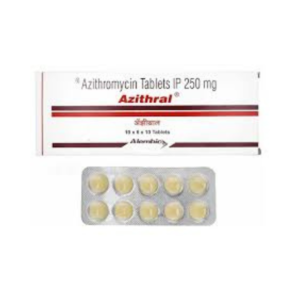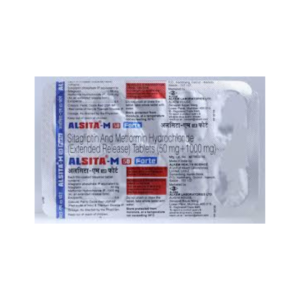ALTRAZ
₹810.00
-
Active Ingredient: Alprazolam.
-
Uses: Primarily used to treat generalized anxiety disorder (GAD), panic disorder, and sometimes for short-term treatment of anxiety symptoms.
-
How It Works: Alprazolam is a benzodiazepine that works by depressing the central nervous system (CNS). It enhances the activity of gamma-aminobutyric acid (GABA), a neurotransmitter that helps to induce relaxation and reduce excessive brain activity.
Description
Altraz (Alprazolam) is used to relieve anxiety and panic disorders. As a benzodiazepine, it works by calming the nerves and reducing feelings of anxiety, agitation, and fear. It is often prescribed for:
-
Generalized Anxiety Disorder (GAD)
-
Panic Disorder
-
Sometimes used for insomnia or as an adjunct for depression.
Dosage and Administration:
-
Initial Dose: Often starts with 0.25 mg to 0.5 mg, taken two to three times a day, depending on the severity of symptoms.
-
Maximum Dose: May be increased to 4 mg/day for severe cases, but should always be done under strict medical supervision.
Administration:
-
Take as prescribed. Can be taken with or without food, but try to take it at the same time each day for consistency.
-
Do not stop suddenly: Abrupt cessation can lead to withdrawal symptoms. If stopping treatment, your doctor will gradually taper the dose.
Common Side Effects:
-
Drowsiness or sedation
-
Dizziness
-
Tiredness
-
Dry mouth
-
Memory problems or difficulty concentrating
-
Decreased coordination
-
Blurred vision
Precautions:
-
Dependence and Withdrawal: Alprazolam can cause dependence if taken for prolonged periods or in higher doses. It should be used for short-term treatment or as part of a broader treatment plan.
-
Avoid Alcohol: Combining alcohol with Alprazolam can increase the sedative effects and lead to dangerous side effects, including respiratory depression and coma.
-
Pregnancy and Breastfeeding: Use with caution during pregnancy, as Alprazolam may harm the fetus. It is also excreted in breast milk.
-
Liver or Kidney Disease: Dosage adjustments are often necessary for individuals with liver or kidney impairment.









Reviews
There are no reviews yet.